When we conduct research, we're working to identify or construct a scholarly conversation. That is, we're establishing the contours of the state of the field, and then positioning our own argument in relation to existing scholarship. So we're looking for both the broad, overarching themes and concepts that define current research on a topic or within a scholarly field, and we're looking for the specific scholarly claims that we can respond to in our own work. Navigating the tension between these two scales -- broad claims and specific claims -- is how we make the case that our own work matters.
The search process that supports effective scholarship oscillates between those two scales, using search strategies that are both specific and thorough.
When you're just getting started, it's best to start with the most basic term and then narrow your results by adding more terms. For example, imagine you are writing a paper that examines how multimodal writing assignments can support translanguaging in a college composition class, it's tempting to use that whole phrase. Unfortunately, when we try that, we get 0 search results.

These search terms were way too specific! Each term in this search has a lot of potential synonyms, or closely related terms: an author might use "code-switching" instead of "translanguaging," or "unessay" instead of "multimodal writing," or "higher education" instead of "college," or "rhetoric" instead of "composition." So every additional term added to a search creates an additional opportunity to miss relevant results.
On the other hand, a search for "translanguaging" gets way too many results!

Somewhat paradoxically, it's actually good news for our imagined researcher that the original search turned up zero results. That often indicates that there's a gap in the existing scholarship that our researcher's work might fill. The scholarship on "translanguaging" is pretty broad, but research into how multimodal writing assignments support translanguaging in the specific context of a college composition classroom pulls together scholarship from different areas of research -- translanguaging, multimodal assignment, and college composition -- to develop a new claim. (In reality, there is a small but growing body of scholarship on this topic.)
Effective researchers try different combinations of terms to identify articles that address different aspects of their research questions.

(Notice that our researcher used a search modifier in the second line of the search: by searching for "multimodal*" with an asterisk, the researcher told the search tool to look for articles that used any word starting with "multimodal," so it's returning articles that use "multimodal" and articles that use "multimodality." There's more information about search modifiers and Boolean operators farther down on this page.)
This is a successful search, but an effective researcher knows that it's not the end. We'll need to try many different combinations of terms to examine the topic from many different angles.
As you develop search terms to narrow overly broad results, consider:
As you search for scholarship to contextualize your new work within the broader scope of the field, consider:

Boolean operators and search modifiers can be used to construct precise search strings that broaden or narrow your search results. Most library databases are designed to make it easy to build search strings using Boolean operators: In the screenshots of the ERIC database above, you'll see that there's a dropdown list to the left of the second and third search boxes. By default, as in the screenshot, the "AND" operator is selected, meaning that each additional search term narrows the results. However, users can select "OR" to broaden the results (for instance, if a researcher wanted to find all articles related to translanguaging OR code-switching), or "NOT" to omit search results that contain a specific phrase.
